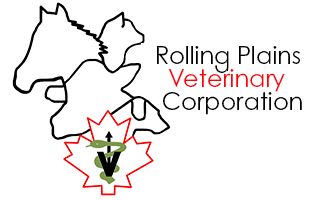At Rolling Plains Veterinary Corporation, we understand how important your rabbit’s health is to you. That’s why we take pride in our experience, accreditations, and tenured professional history as emergency vets. As a rabbit vet, we’re here to provide you with peace of mind about your rabbit’s health, and we’ll always do everything we can to ensure that they receive the best possible care.
Caring For Your Rabbit
We often think of rabbits as cute, low-maintenance pets, but they require focused care to stay healthy and happy. In this blog post, we’ll give you the ultimate guide to caring for your rabbit. We’ll cover the benefits of keeping a rabbit, their basic needs, common health issues, and tips for keeping them in their optimum health.
The Benefits of Keeping a Rabbit
Emotional Benefits
Pet rabbits can provide emotional benefits for their owners. We have known them to help us reduce stress and anxiety, and they can even help us fight depression. Rabbits are social creatures that enjoy companionship, so they make great pets for people who live alone or who have limited social interaction.
The Basic Needs of a Rabbit
Housing
A rabbit’s housing needs will vary depending on the climate in which it lives. If you live in an area with cold winters, your rabbit will need a hutch that is well-insulated and has a door to protect it from the elements. If you live in a warm climate, you can house your rabbit outdoors in a hutch with plenty of shade and ventilation.
Your rabbit’s hutch should be large enough for them to stretch out and move around. It should also have a separate sleeping area and a litter box. We should fill the litter box with hay or another absorbent material, as rabbits like to dig and burrow.
You will also need to provide your rabbit with fresh water at all times. The best way to do this is to attach a water bottle to the wall.
Diet
A healthy diet for a rabbit includes hay, fresh vegetables, and a few pellets. However, hay should make up most of their diet, as it is essential for their digestive health. We can give rabbits fresh vegetables daily, including leafy greens, carrots, and other crunchy vegetables.
However, we should only give pellets in small amounts, as they are high in calories and can lead to obesity if overfed. Rabbits also like to chew on things, so providing them with toys or pieces of wood to gnaw on is important for their dental health. Chewing also helps keep their minds active and prevents boredom.
Exercise
Rabbits are very active creatures and need plenty of exercise to stay healthy. A good way to provide exercise for your rabbit is by setting up a play area in their enclosure with toys and obstacles for them to jump over or through. You can also take them out for supervised playtime in a safe area away from predators or other dangers.
Exercise is important for rabbits as it helps maintain their muscle tone and keeps their minds active. It is also necessary for their digestive health, as rabbits need to keep their gut moving to avoid gastrointestinal issues.
Common Health Issues in Rabbits
Overview of Common Health Issues
There are many health issues that can affect rabbits. Some of the most common problems include:
- Dental problems: Because rabbits have continuously growing teeth, they are prone to dental problems if their diet is not properly balanced. A diet high in hay helps keep the teeth worn down.
- Gastrointestinal problems: Rabbits can suffer from a variety of gastrointestinal issues, including diarrhea, constipation, and GI stasis (a condition where the digestive process slows down or stops). A diet high in fiber helps keep the GI tract working properly.
- Respiratory problems: Rabbits are susceptible to respiratory infections due to their long ears and proximity to the ground. Therefore, good hygiene and clean housing are important for preventing respiratory problems.
- Urinary tract problems: urinary stones or blockages can be a problem for rabbits. A diet rich in water helps prevent these problems.
Frequently Asked Questions
Caring for a pet rabbit is not as difficult as one might think. Here are answers to some frequently asked questions about rabbit care:
Q. How much exercise time does a rabbit need?
A. A rabbit needs at least four hours of exercise every day. This can be provided by letting the rabbit have a free run of the house, or by providing a large cage with plenty of toys and space to run and hop around.
Q. What do rabbits eat?
A. A diet for a pet rabbit should consist of hay, fresh vegetables, and a small number of pellets. Water should be available at all times.
Q. What kind of cage does a rabbit need?
A. A cage for a pet rabbit should be at least four feet by four feet and should have a solid bottom. The cage should also have a litter box and plenty of toys and space for the rabbit to exercise.
Q. What kind of litter should be used in the rabbit’s litter box?
A. The best type of litter to use in a rabbit’s litter box is paper-based litter, such as Carefresh. This type of litter is soft on the rabbit’s feet and is unlikely to cause intestinal blockages if ingested.
Q. What kinds of toys do rabbits like?
A. Rabbits like to chew, so chew toys are a good choice. Cardboard boxes, paper towel rolls, and willow baskets are also popular rabbit toys.


